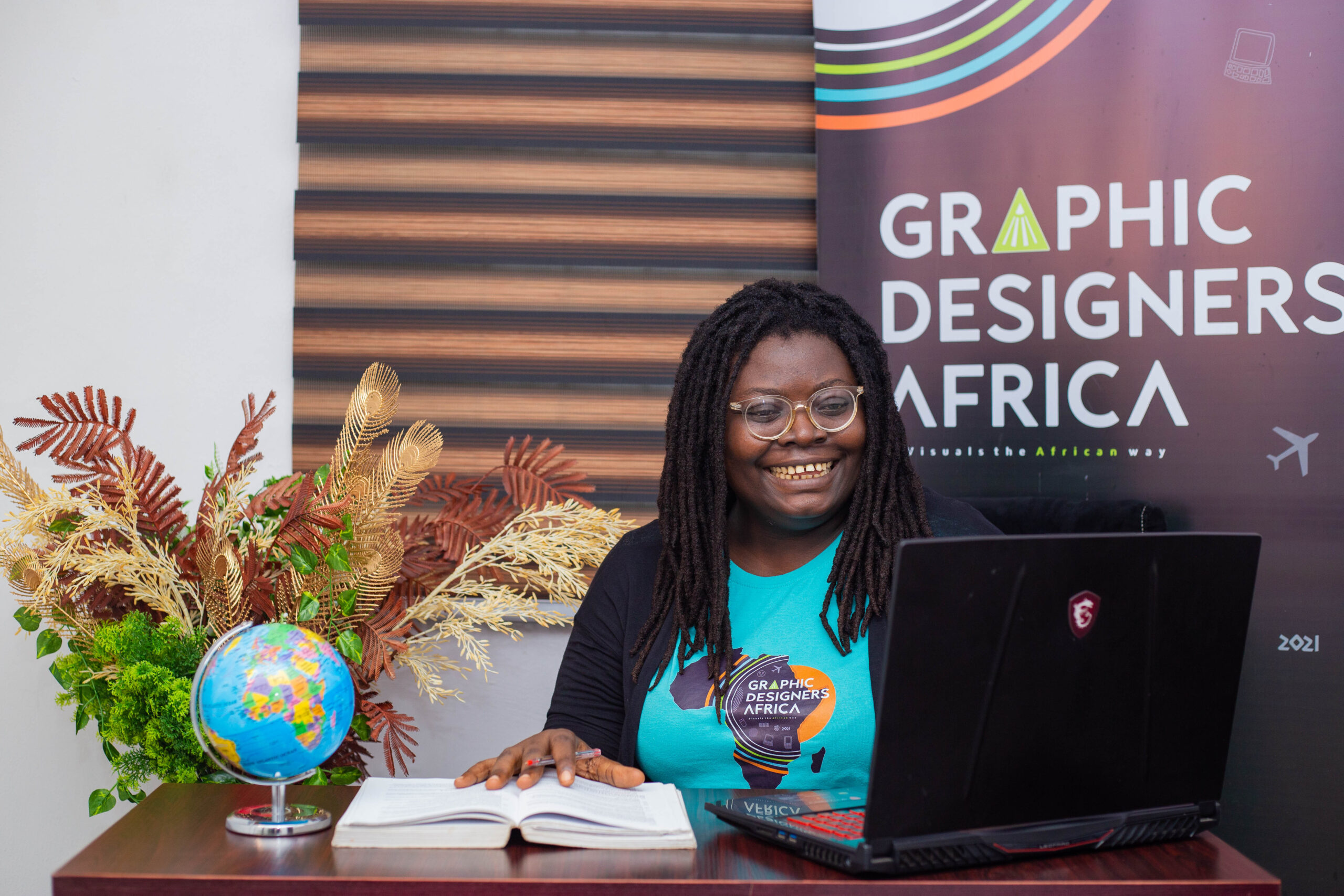Deborah Briggs weaves her way through the heavy traffic in Port Harcourt, through a world alive with color and possibility. With a childhood steeped in of adventure books and storytelling, Briggs’ imagination and fantasy knew no bounds.
“I remember spending hours engaged in adventure books, fueled by an active imagination. I also remember gathering my siblings and spinning tales of winning lotteries,” Briggs reminisced.
Spurred by her flair for adventure, Briggs opted to participate in the popular television series Who Wants to be a Millionaire?, after passing an intelligence quotient (IQ) test. She, however, got disqualified when it was discovered that she was younger than the show’s recommended age. Briggs ploughed ahead in her drive nonetheless.
Becoming a graphics designer
Despite her background in petroleum engineering, Briggs veered in a completely different career path after graduation. Briggs established a printing venture in her hometown, in Rivers State, taking on lessons in graphic design as a boost.
With years of experience under her belt, she curated a Facebook group–Graphics Design Africa (GDA)—that promotes young Africans in arts and graphics design. Currently, Briggs has more than 3000 art designers under her wings.
Strengthening social cohesion
Briggs is of the belief that non-specialized games can provide a sense of accomplishment and social connection, which can help ease depression. Mental prowess and productivity, she maintains, are honed through educational games.
“While trying to figure out how to support some young children who were coming around, I believe I came up with the idea for the very first educational card game. It was easy for me to create it because I’m a printer. So, when I came up with the concept, I could just produce it, test it, you know, and I had kids around me to play with it, to discover how it works. So what happened is that we started playing the game together,” Briggs told Prime Progress.
Vokab Game is an engaging instructional card game now played by adults and children across Nigeria and Ghana. In addition to having fun, players of Vocab Game are introduced to new words. Thinking forward, Briggs thought of a game that held players spellbound.
Briggs’s latest innovation, the Babaca Quiz game, celebrates the intelligence of Africans. The name of the game is a portmanteau of Baobab and Acacia, two African trees of rich history. By adopting these tree names, Briggs hopes to reenact the cultural significance of these trees, creating a warm and dynamic platform for Africans to connect.
The Babaca gaming platform, which has been scheduled for launch later this month, comprises five levels, each featuring a timed quiz of 10 questions. Players who answer all questions correctly progress to the final level to compete for the grand prize of N100,000 in Nigeria. Open to individuals aged 15 and above from Nigeria and Ghana, each episode requires a subscription fee of N1,000 or 20 Ghc.
According to Briggs, the aim is to educate players in an African way, even with the chance of winning a cash prize, While Vokab focuses on words, this game covers various subjects. It’s designed to stimulate quick thinking, facilitate learning, and reward players in real time during the game.
“My inspiration stems from observing our country’s economy and recognizing that there’s still much room for productivity improvement, especially when people are better educated. While formal education may seem dull to some, ‘gamifying’ education makes learning enjoyable and entertaining. It transforms learning into an experience that feels like playing, yet individuals are acquiring knowledge.”
Speaking of the audience for the games, “A million people from Nigeria have indicated interest in games on their platform, according to Facebook records alone. This number could be even higher, doesn’t even include children. Therefore, there is certainly a market in Nigeria for games even as we commence with over 120 subscribers this March, there will be growth.”
Her company, Quickprints Media & Communications Limited, funds the innovation, “In the future, as we continue to grow and develop, we aim to open up sponsorship opportunities for brands to support us in exchange for visibility within the community. Also, individuals who simply want to donate and support the project will be welcome.”
The games incorporating African culture and experiences are, however, limited by financial constraints. “Not many people may pay attention to it, and the organizations with the platform and publicity to bring attention to such initiatives may not be giving it much focus,” she said.
Another limitation she identified in her first game, Vocab, is an inability to produce the materials used for the game locally, as most were imported. “I was hoping we could produce it locally, but the cost would be significantly higher here in Nigeria, mainly due to the high cost of production in the printing industry. We got stuck because I didn’t want us to proceed, knowing that it wouldn’t be feasible to produce it locally. The cards used in playing this game were not produced in Nigeria,”
As a frontrunner in Nigeria’s game industry, Briggs looks forward to a future that offers inclusion to women from STEM backgrounds and creates a diversified gaming industry.
Deborah Briggs navigates through Port Harcourt, inspired by a childhood filled with adventure books and storytelling. Despite being disqualified from "Who Wants to be a Millionaire?" due to age constraints, her passion for creativity led her to establish a graphics design venture and a Facebook group, Graphics Design Africa, which supports over 3000 designers.
Briggs believes in the power of games to foster social cohesion and mental sharpness, demonstrated by her creation of the educational Vokab Game. This game, along with her latest innovation, the Babaca Quiz game, aims to educate while entertaining. The Babaca Quiz, scheduled for launch soon, involves various levels of timed quizzes with cash prizes, targeting participants from Nigeria and Ghana aged 15 and above.
Her company, Quickprints Media & Communications Limited, currently funds her projects, with hopes to garner future sponsorships. Despite financial and production challenges, particularly in producing local game materials, Briggs is committed to promoting African culture and expanding the gaming industry, with a vision of inclusivity for women in STEM fields.







This is amazing..Thank you for putting in work for all of us out there…may heaven rewards you ma.